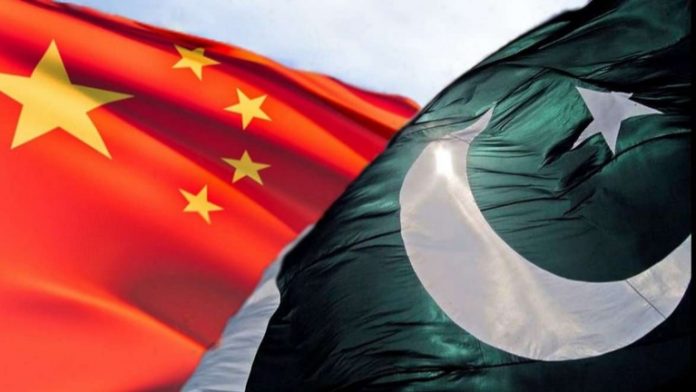ISLAMABAD: As China Pakistan Economic Corridor (CPEC) has entered its stabilization stage, detractors and critics have sharpened their tools to trigger unfounded and baseless criticism. Hence is again the sobs and blubbers of debt burden and debt servicing to be made by Pakistan.
Exclusive documents of Chinese Embassy available with Pakistan Today suggest that so-called claims of $40 billion debt to be paid to China by Pakistan under CPEC is a mere counterfeit, forged and misleading. Though the Ministry of Planning and Development has also issued a clarification, the documents of the Chinese Embassy have further broken facts from fiction.
According to the breakdown of Chinese investments in Pakistan, 22 early harvest projects under CPEC have been completed or are under construction, with a total investment of $18.9 billion.
These projects aim at resolving two major bottlenecks hindering economic development of Pakistan, including lack of transportation infrastructure and energy shortage.
The financing details of 22 ongoing projects are as follows:
The Chinese government provided concessional loans of $5.874 billion for Pakistan government’s major transportation infrastructure projects, with a composite interest rate of around two per cent in a repayment period of 20-25 years. Meanwhile, the Pakistani government provides a sovereign guarantee for the above loans and will start the repayment from 2021.
“The Chinese companies and their partners invested $12.8 billion in energy projects in Pakistan. Among them, Chinese companies provided $3 billion from their own equity. The rest $9.8 billion is raised from commercial banks with an interest rate of about five per cent. The repayment period is 12-18 years. All the CPEC energy projects are an investment in nature, which is purely independent business behaviour of these companies,” the document read.
“The companies are responsible for their own profits and losses and repayment of loans. The Pakistani government does not repay these loans under CPEC. The business cooperation between the two sides is in full compliance with internationally accepted business practice,” the document stated further.
“The Chinese government provides interest-free loans for Expressway East Bay in Gwadar. Moreover, the Chinese government provides a grant for some livelihood projects,” the documents further clarify.
About revival and upgradation of Pakistan’s Railway track also called ML-I, the Pakistani government has provided funding for the feasibility study.
“Therefore, Pakistan will repay only $6.017 billion (Category 1 $5.874 billion and Category 3 $0.143 billion) and their interests to China”.
Moreover, China and Pakistan are now discussing how to use the Chinese grant to implement new projects such as the new Gwadar International Airport, Gwadar Vocational Training Centre and Friendship Hospital, etc. Once the financial details are available, they will be shared with media,” an official of the Chinese embassy said.
Moreover, during Prime Minister Imran Khan’s visit to China in November 2018, the two sides reaffirmed their commitment to CPEC and agreed to ensure the normal operation of the completed projects and the smooth completion of the on-going projects.
“The two sides also agreed to consult with each other on the future path and direction of CPEC, taking consideration of Pakistan’s priority of economic and social development and the demand of Pakistani people,” the official noted.
On December 20, 2018, China and Pakistan successfully held the 8th Joint Cooperation Committee (JCC) meeting of CPEC in Beijing and decided to set up a social-economic joint working group under CPEC.
Under the agreement, the Chinese side will provide more support to the people’s livelihood projects such as education, agriculture, poverty alleviation, healthcare and vocational training.
Moreover, both sides have also signed a Memorandum of Understanding (MOU) on industrial cooperation and have agreed to jointly promote the construction of Special Economic Zones (SEZs). With this understanding, CPEC has entered a new phase of broadening and expansion in the next five years.
CPEC is a major and an important economic cooperation project between China and Pakistan. All CPEC projects are based on the consensus of the two countries and fully comply with relevant laws and regulations.
“The Chinese Embassy appreciates the Pakistani people for their support on CPEC and welcomes the supervision from all works of life. We are willing to join hands with Pakistani friends to nourish CPEC and create a favourable environment for cooperation,” the official said.
“We believe that CPEC, as an important project for China-Pakistan cooperation, will not only help Pakistan to ease energy load shedding, improve infrastructure connectivity, promote economic growth, but also benefit the people of Pakistan and make an important contribution to the building of China-Pakistan Community of Shared Future,” the official concluded.




